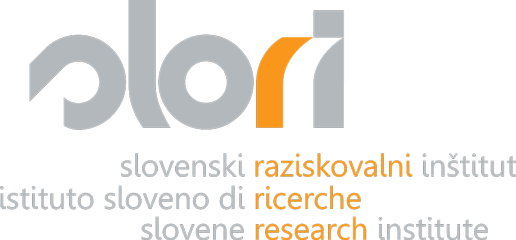Research project
Project holder: SLORI
Project manager: Norina Bogatec
Project implementation period: annual monitoring since schoolyear 2010/11
The Slovene Research Institute SLORI has always dedicated much attention to Slovenian schools in Italy and to the problems regarding schooling in minority languages in general. Testimonies of such efforts are studies, researches and publications that SLORI has carried out and published during its 35-year long activity.
SLORI monitors with particular attention the change dynamics in ethnic and linguistic traits in children attending Slovenian schools of all grades and types in the provinces of Trieste and Gorizia and of the Bilingual comprehensive Institute with Slovenian and Italian as teaching languages in San Pietro al Natisone. The ethnic and linguistic composition of the schooling population are particularly important aspects in planning educational strategies, considering their role in educational contents choices and in structuring the most adequate pedagogical and didactic approaches. These aspects are also important for defining aims and objectives as well as the role of minority schools, which function as an instrument for empowering Slovenian presence, language and culture in Region Friuli Venezia Giulia.
Since schoolyear 2010/11, SLORI, in collaboration with headmasters’ offices of Slovenian schools of all types and grades, introduced a standardized method for collecting data on the ethnic origin and linguistic habits of preschool children, of pupils and students attending schools of all types and grades in the provinces of Trieste and Gorizia, and of those attending the Bilingual comprehensive institute of San Pietro al Natisone.
With this in mind, a questionnaire has been prepared for parents of preschool age children, of pupils of primary schools and of alumni of primary and secondary grade secondary schools, which is administered at the moment of enrolling children in the first year of each school grade.
In 2015, the data regarding the enrollment period 2010-2014 have been elaborated.
In 2016, the Institute agreed with school principals that after a few years’ hiatus, it would repeat the data collection in the 2019/20 school year on first-year pupils in all levels of schooling. Thus, the 2019/20 school year marked the sixth implementation of SCHOOL2019. On the basis of a prior agreement with the respective school administration offices, our questionnaires focused language use. The questionnaires were given to parents of pre-school and primary school children by the school principals, while the participating secondary school students completed the questionnaire in class. The questionnaire for secondary school students included a question about the proximity of Slovene and Italian cultural elements. The report contains data from 935 (88%) out of a total of 1,065 first graders in the 2019/20 school year.
